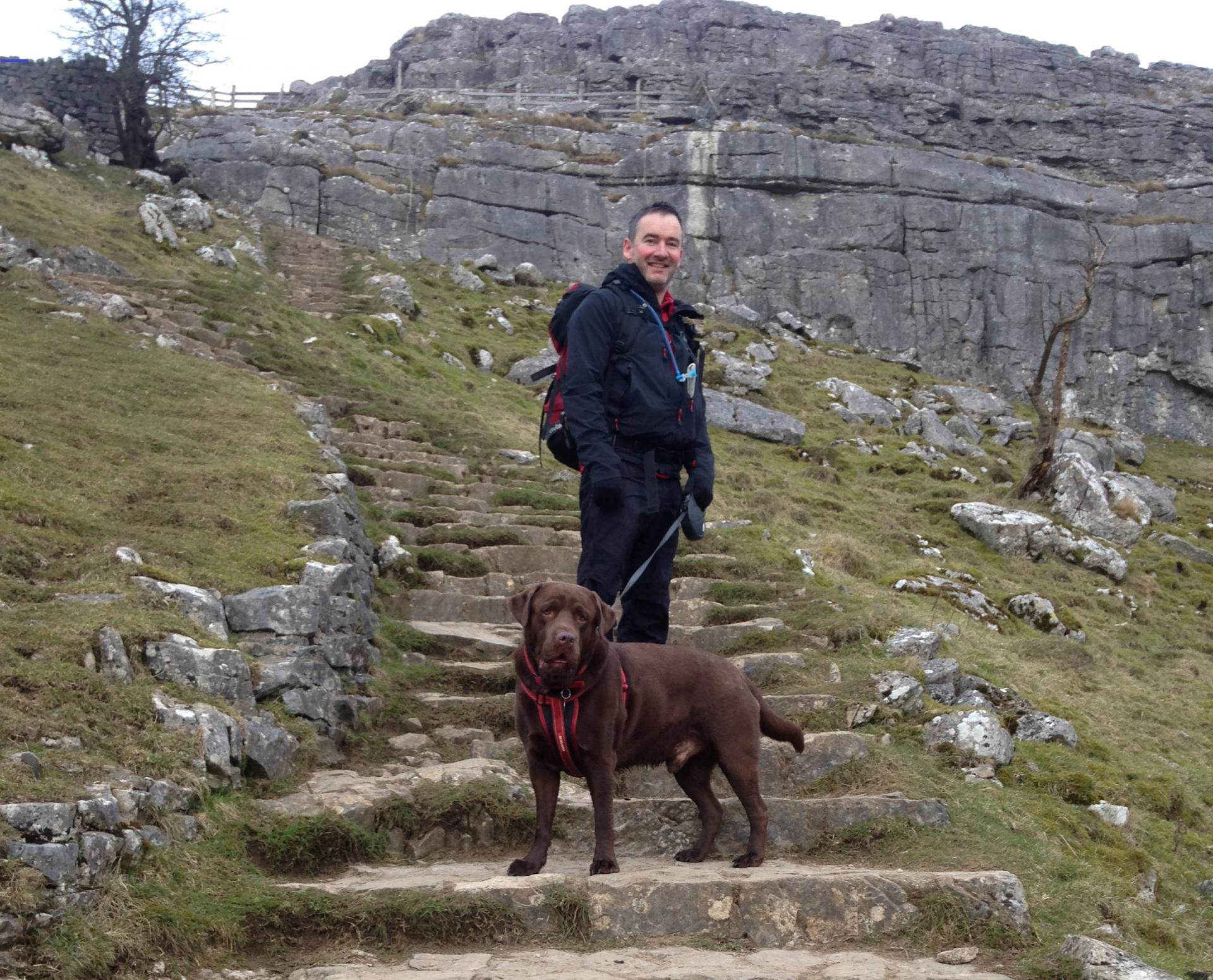Nigel
A diagnosis of lymphoma is complex, but add COVID-19 and a fractured vertabrae and it becomes even more challenging.

'At 55, I still really enjoy outdoor pursuits, and in January 2020 I was in Italy skiing. It had been a really enjoyable holiday, but when I got back I started to have several symptoms. I felt really tired, I started to lose weight without trying, was experiencing night sweats and in addition I developed a persistent cough. To add to all this, I was then experiencing really bad back and neck pain.
I rang my GP who suspected it was a bacterial infection and I was given some antibiotics for the chesty cough and naproxen to treat the back pain, however in March I then started having bleeding from the bowel. As my GP was unsure if this was due to the naproxen he took me off it which stopped the bleeding, but due to also having the weight loss I was referred on fast track for bowel cancer screening.
It is hard to know which of the symptoms are as a result of the COVID-19 and which are because of the lymphoma.
The scan and appointment with the colorectal consultant was arranged almost immediately. By now it was April and COVID-19 meant that hospitals were performing fewer tests, so I didn’t have to wait long for one. The initial scan, whilst clearing any bowel cancer concerns, showed a number of enlarged glands which were concerning so I was referred for an ultrasound guided biopsy of a gland under my arm and then referred on to a haematologist . The initial biopsy was inconclusive so a further biopsy review was sought.
I had a face-to-face meeting with the haematology consultant in early June who informed me I had stage 4 lymphoma, but wanted to carry out more tests and had arranged for me to have a PET scan. The results of this combined with the biopsy indicated that I did have lymphoma, but they were inconclusive whether it was a high-grade or low-grade type. The lymphoma was in my stomach, spleen, lungs, long bones and neck. After further investigation, it was ascertained that I had probably had an underlying low-grade lymphoma for some time, which had partly transformed into a high-grade lymphoma. I was diagnosed as stage 4B. Looking back, 18 months beforehand I had felt some swollen glands under my arm and had approached my GP and been re-assured it was nothing serious. Perhaps I should have pursued that more then.
In my consultation, my haematologist had some concerns from the PET scan about my c3 vertebrae stability and that the chemotherapy treatment could weaken it as the cancerous cells were killed, so arranged a CT scan of my neck that afternoon and referred the results to neurosurgery for review.
I had returned home that afternoon trying to take on board the diagnosis when I received a phone call calling me straight back in to the hospital as it had been identified by the neurosurgeons that the cancer had already caused an unstable wedge compression fracture of the c3 vertebrae. I was admitted to hospital and spent most of that night in head block stabilisation on a split stretcher until I was placed in an Aspen collar which I have had to wear since then. I then started the first of six rounds of R-CHOP chemotherapy the following day, with additional injections at home to stimulate the white blood cells from the bone marrow.
After the third cycle, I told my medical team that I was struggling with numbness in my feet and hands, which they explained is peripheral neuropathy. As a result, they removed and substituted the vincristine in the R-CHOP to stop this side effect getting any worse.
I was struggling with numbness in my feet and hands, which they explained is peripheral neuropathy. As a result, they removed and substituted the vincristine in the R-CHOP to stop this side effect getting any worse.
A PET scan after the third treatment showed the ‘hot spots’ had reduced in my lungs and spleen, but were still evident elsewhere. My neck was still causing me problems, and I needed to wear a permanent collar to protect my neck, but a further CT scan and appointment with the neurosurgeon showed the R-CHOP seemed to have improved the bone density of my c3 vertebrae, which was reassuring. They are still considering later surgery on my neck but this is now less likely and I will require radiotherapy on that and my left femur. But for now, everything is focussing on the R-CHOP for lymphoma.
I had told my medical team about the cough my wife and I had earlier and how ill I had felt. As soon as they became available they carried out an antibody test on me which showed I had had COVID-19. It was hard to know which of the symptoms are as a result of the COVID-19 and which are because of the lymphoma.
In sharing my story with others in one of the Lymphoma Action Zoom meetings a number of people found it reassuring to hear that in my case, despite having lymphoma, it is still possible to get through COVID-19 without hospitalisation. That's why I have shared this history further with you all.'
Nigel
